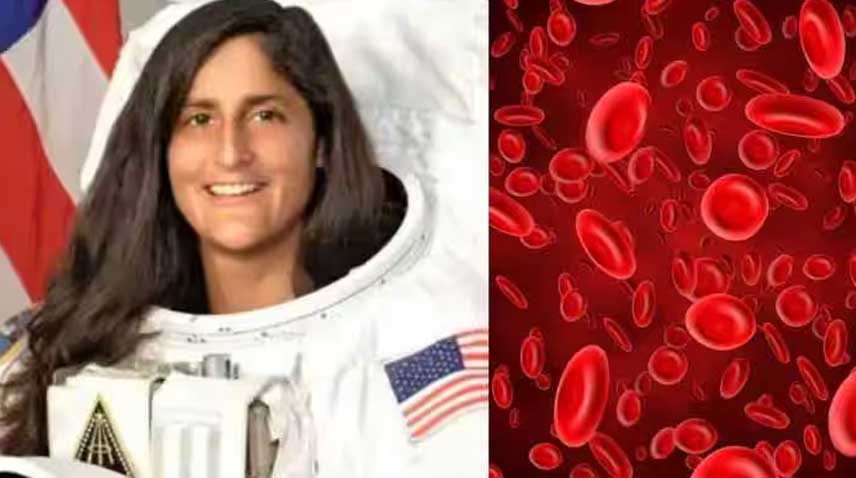
Space anemia causes red blood cells to be destroyed at an alarming rate, leading to severe fatigue, mental health changes, reduced heart function, bone loss, and overall bodily imbalance.
Besides Sunita Williams, also Barry Wilmore is set to extend his stay at the ISS until early 2025.
A study titled, ‘Hemolysis contributes to anemia during long-duration space flight’ was published in Nature Medicine. The recent research has shed light on the effects of microgravity on the human body. It has found that astronauts experience a decline in red blood cell mass during extended space missions. This reduction can have long-term implications for their health.
Conducted by Trudel and colleagues, the research monitored 14 astronauts on 6-month ISS missions, and revealed increased levels of red blood cell destruction, known as hemolysis. This phenomenon persisted even a year after returning to Earth.
To mitigate serious health effects, NASA will closely monitor the astronauts’ health, conducting regular blood tests and ensuring adequate nutrition and exercise. Researchers are also exploring strategies to counteract the impact of microgravity on red blood cell production.
It is hoped that Williams and Wilmore’s extended stay will provide valuable insights into the effects of microgravity on the human body.




